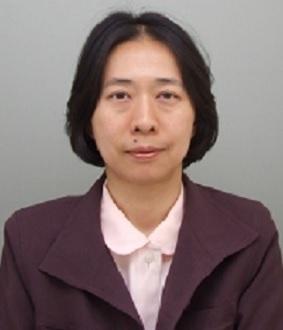
Habitat III will take place in wonderful city of Quito Ecuador from 17th to 20th October this year. This is going to be one of the most important global forums to follow up the implementation of the 2030 Development Agenda. The conference is going to result in a new global framework: the New Urban Agenda and this will give us theFUTURE direction of urbanization across the world.
direction of urbanization across the world.
We have been contributing to this process leading to Habitat III by organizing the Nairobi conference which took place last year; we also collaborated with the UN Habitat Secretariat to organize a number of events and panel discussions relating to disability inclusion and urban development. We are also collecting good practices with the Zero Project with all of you and with the Secretariat to advance the accessible and disability inclusive urban agenda, so that we can compile the information, compile all the progress that has been made in in terms of promoting an accessible and inclusive urban agenda. From the policy standpoint this issue of disability inclusion and accessibility has been codified in major international instruments and General Assembly resolutions and other international commitments.
For example the convention itself the Convention on the Rights of Persons with Disabilities establishes accessibility as a precondition for persons with disabilities to enjoy all the human rights and to meaningfully participate in society and development. This has been reiterated again at the United Nations General Assembly high-level meeting on disability and development that took place in 2013.
The International Committee recognized that accessibility is one of the top priority issues for any aspect of inclusive development. The 2030 Development Agenda itself, especially its Goal 11 of the Development Targets, refer to disability and accessibility.
The key question before us is: How can we transfer those international commitments into national and urban policy and practices to ensure that that development is inclusive of all people including persons with disabilities?
The UN has been actively promoting inclusive development as an integral part of its original mandate in the field of disability, including in urban contexts. But our studies have found that the barriers or lack of accessibility have been a major obstacle to the achievement of inclusive and sustainable development.
The upcoming Habitat III conference will be able to do offer us a great and very unique opportunity to fill the gap between commitment and practice. The outcome document of Habitat III will be drafted by the PrepCom (Preparatory Committees) on the basis of inputs from regional and thematic consultations as well as contributions from the policy units. The preparatory conference will be convened in Mai, June and July in 2016 to draft the outcome document. The outcome, the final agreement will take place at the third PrepCom meeting in Jakarta/Indonesia from 25th to 27th July 2016.
I would just like to mention that there will be consultations with major groups and stakeholders in the coming months and please also keep yourselves updated in terms of when those major groups and stakeholders consultations take place through Habitat III website.
We are now at that critical and historical moment when Habitat III is to discuss and develop a new global agenda for the next two decades. Let us work together to make sure that any aspect of the process leading to the Habitat III conference will be accessible and also will be inclusive.
In other words: Persons with disabilities and their partners in promoting accessibility and inclusive development should be an integral part of the mainstream discussion of the international community as to how we can create an inclusive and accessible environment for new urban development agenda. I look forward to working with you very closely and I hope that we will be able to make a difference such as in the Sendai framework and that we will be celebrating yet another success by early 2017.
———
Akiko Ito is the Chief of the Secretariat of the Convention on the Rights of Persons with Disabilities at the Division for Social Policy and Development of the United Nations Department of Economic and Social Affairs (UN DESA/DSPD).
This commentary is taken from the video statement given by Ms. Ito at the Zero Project Conference in Vienna, February 10, 2016.










Add new comment